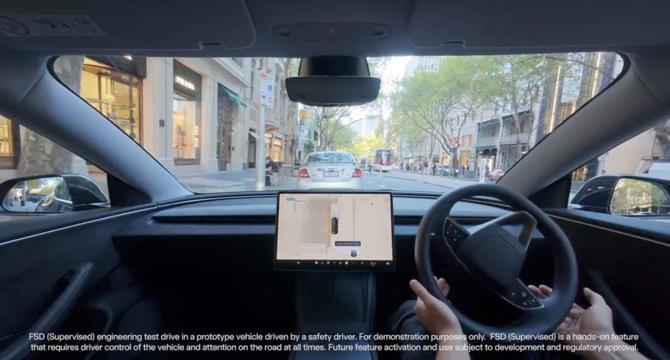Paultan
2d
192

Image Credit: Paultan
Tesla owners in Australia join class action for phantom braking, Autopilot issues affecting Model 3, Model Y
- A class action lawsuit against Tesla in Australia is gaining momentum with around 10,000 Tesla owners joining the lawsuit for issues such as phantom braking, battery problems, and misleading Autopilot claims.
- The lawsuit claims that Tesla Model 3 and Model Y vehicles autonomously engage Emergency Braking abruptly, posing collision risks.
- An owner of a Model 3 experienced sudden braking on the highway, almost resulting in a collision with a truck.
- Tesla owners reported instances of sudden braking without reason while driving at high speeds.
- The lawsuit also addresses battery range figures not meeting advertised claims.
- Tesla demonstrated its Full Self Driving (FSD) feature in Melbourne, showcasing its capabilities to navigate traffic and perform complex maneuvers.
- The company planned to release the FSD assistance suite in right-hand-drive markets by early Q2 after its launch in Europe and China in Q1.
- The class action lawyers and Tesla owners raise concerns over safety and functionality issues with Autopilot and other driving features.
- Tesla's FSD technology is showcased in various driving scenarios to demonstrate its capabilities.
- The legal action in Australia highlights the growing concerns amongst Tesla owners regarding the performance of their vehicles.
- The lawsuit seeks redress for problems related to phantom braking and battery range discrepancies.
- Tesla's FSD technology is a focal point in the ongoing discussions around safety and functionality.
- The class action is supported by reports of unexpected braking incidents and Tesla's promotion of autonomous driving features.
- The lawsuit aims to address the alleged issues faced by Tesla Model 3 and Model Y owners in Australia.
- Tesla's Autopilot feature is under scrutiny with claims of misleading functionalities and safety concerns.
- The company's FSD suite is being introduced in various global markets, with a focus on expanding its capabilities and addressing user feedback.
Read Full Article
11 Likes
For uninterrupted reading, download the app